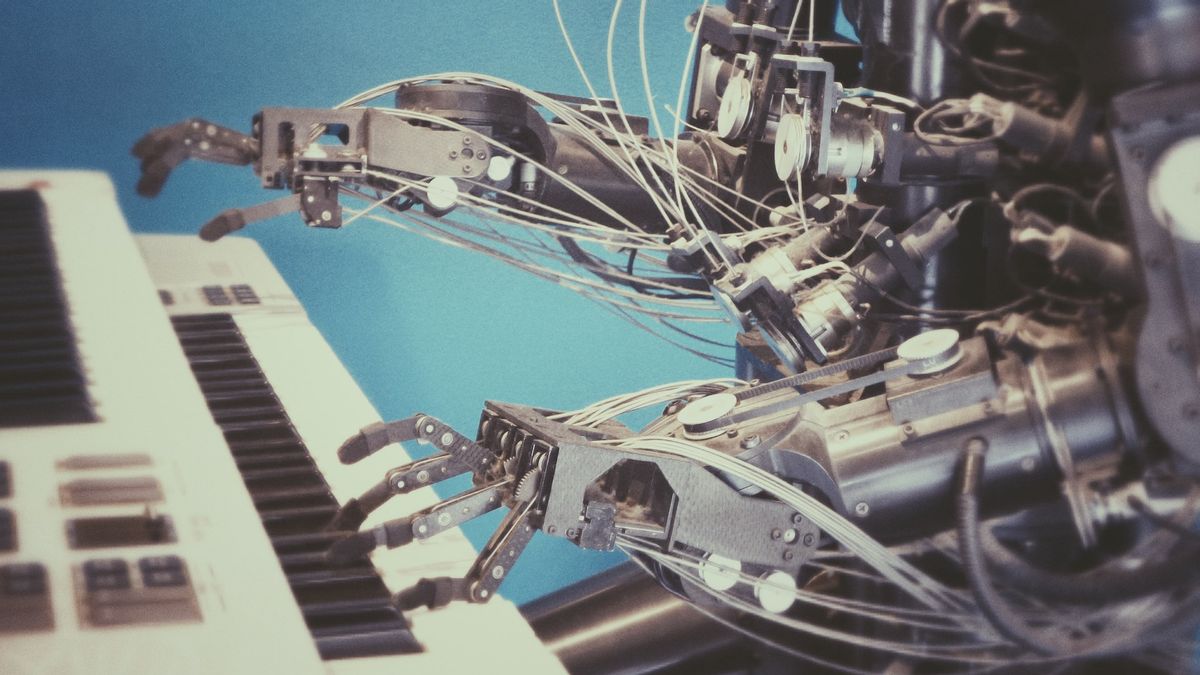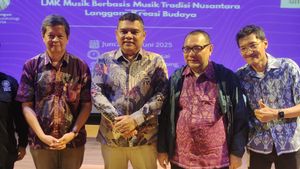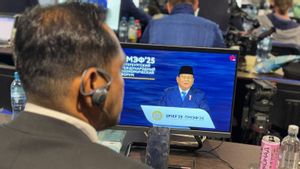JAKARTA - The Music Making Council (CMM) submitted an open letter regarding the government's'very deaf' hearing regarding the impact of AI (artificial intelligence).
The UK government's Department of Culture, Media & Sports (DCMS) met on Monday as part of a round table discussion to discuss opportunities and challenges posed by artificial intelligence in the creative industry, with input from the music, film, book and photography sectors.
Although the music industry is well represented, CMM has criticized the government's hearing for the lack of representatives representing artists and songwriters.
Led by the Cultural Secretary of Lucy Frazer, DCMS said: The essence of this discussion is concerns about copyrighted material being used without permission to train AI models such as ChatGPT and the risk that AI-generated content has the potential to violate intellectual property of advertising material. This meeting is also expected to include the necessary protection of the artist's similarity and voice.
Frazer added: "The strength and achievement of Britain in the arts and entertainment means we are in the right position to take advantage of technological developments in this field. However, creative workers have concerns about how their work is being used by artificial intelligence today and in the future, and I want to listen to them."
He continued: "As the Minister of Culture I want to maximize the potential of our creative industry and develop it for 50 billion by 2030, creating one million new jobs. I believe that AI can help achieve these goals, but only if opportunities are developed responsibly and in line with industry, which is the ambition behind today's meeting."
The session was attended by David Joseph of Universal Music, Jason Iley of Sony Music, and Tony Harlow of Warner Music as well as one representative from the Framestore Group, Publishers' Association, and Getty Images.
Other participants included the government's Intellectual Property Office, Alliance For IP, and author Nina Schick author of Deepfakes: The Coming Infocalypse. There is only one representative of each artist and creator, Nicola Soloman, who is the CEO of the Society For Authors and also the chairman of the Alliance for Transverse Content Making Rights.
Criticizing the lack of representation of human creators on the round table, CMM said in their open letter: We are deeply concerned that the government is forming a round table that provides only one seat to representatives of all creative workers in all media (including films), theaters, literature and music), but has three seats for executives from large record companies. This is very unbalanced and tone-negligible.
اقرأ أيضا:
They continued: It's very important to understand that when company rights holders make decisions about digital policy and digital business models, they do so without consulting with the music community. These decisions are made in secret and unilaterally and are rarely even communicated to music makers and their teams.
The last 25 years have also shown that when making decisions the holder of corporate rights always prioritizes the interests of its shareholders. It is true that sometimes the interests of shareholders and music makers are in line, but sometimes they are diametrically contradictory.
The English, Chinese, Japanese, Arabic, and French versions are automatically generated by the AI. So there may still be inaccuracies in translating, please always see Indonesian as our main language. (system supported by DigitalSiber.id)











